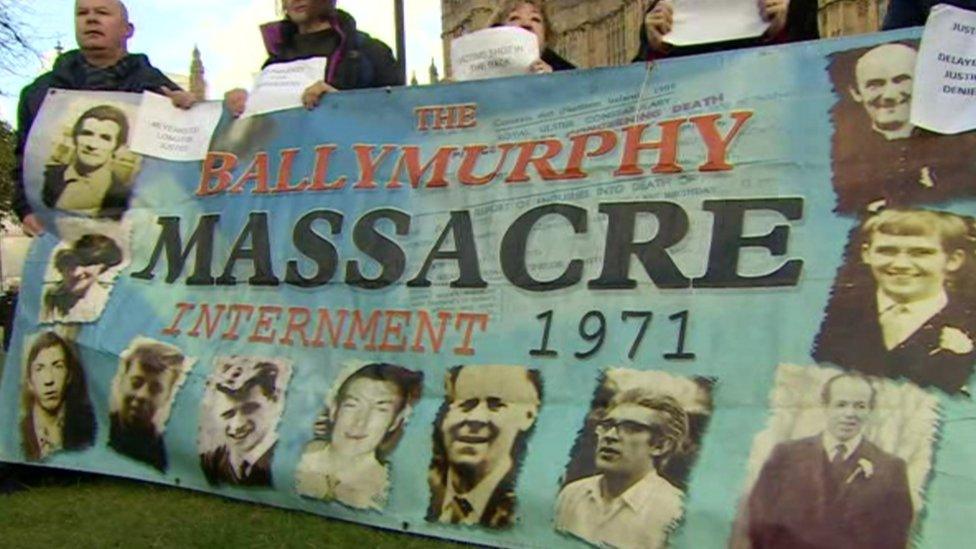Ballymurphy inquest: Shooting witness suffering PTSD
- Published
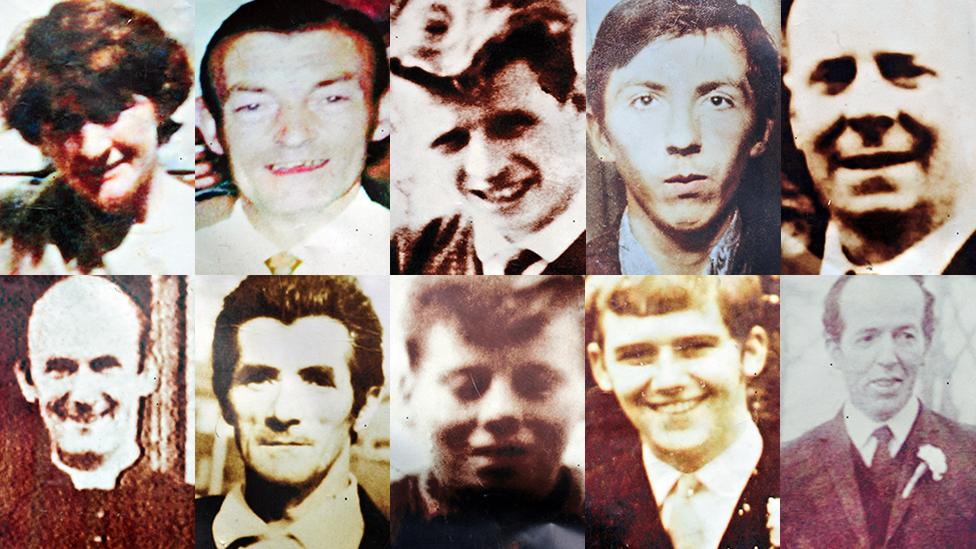
Nine men and a woman were killed in Ballymurphy in August 1971
A witness to one of the shootings at Ballymurphy almost 50 years ago has suffered from post-traumatic stress disorder (PTSD) ever since, the inquest into the deaths has heard.
James McCabe, 67, had never given a statement until he spoke to the Coroners Service this year.
He saw Edward Doherty, 31, shot dead close to the junction of Whiterock Road and Brittons Parade in August 1971.
Ten people were shot over three days that month.
The shootings occurred amid disturbances sparked by the introduction of internment without trial in Northern Ireland.
The shooting of Edward Doherty, a father of four, happened close to a barricade that the Army had been trying to remove.
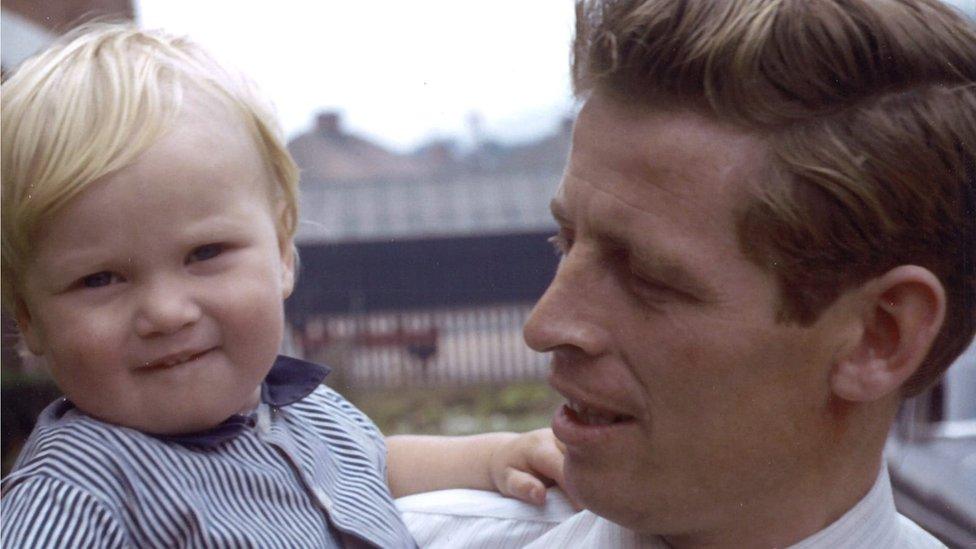
Edward Doherty and his youngest son
It had been erected by those who were keen to keep soldiers out of Ballymurphy in west Belfast.
'Changed my mind'
Mr McCabe, who lived near the incident at the time, said he was fearful of giving evidence due to his health.
He said: "I made a conscious decision not to get involved before because I didn't think the truth wouldn't come out."
Recent newspaper articles about the deaths and the absence of a truth commission in Northern Ireland had encouraged him to change his mind.
He also believed that a soldier involved in the incident had changed his version of events.

Who were the victims?
Father Hugh Mullan, 38, and Francis Quinn, 19, were shot in an area of open ground behind Springfield Park
Daniel Teggart, 44, Joan Connolly, 44, Noel Phillips, 19, and Joseph Murphy, 41, were shot near the Henry Taggart Army base near Springfield Park
John Laverty, 20, and Joseph Corr, 43, were shot at separate points at the top of Whiterock Road
Edward Doherty, 31, was shot at the corner of Brittons Parade and Whiterock Road
John McKerr, 49, was shot outside the old Corpus Christi Parish

He described the day he was at the barricade on Whiterock Road and explained that he had not known Edward Doherty.
He told the court that, from a distance of about 30ft (9m), he could see a soldier in a blue or black beret driving a digger and trying in vain to clear the barricade.
He said the soldier then opened the door of the cab.
The soldier sprayed the crowd opposite with an automatic weapon in his left hand, without shouting a warning and while still standing on the vehicle, said Mr McCabe.
He thought the soldier might have fired a full magazine.
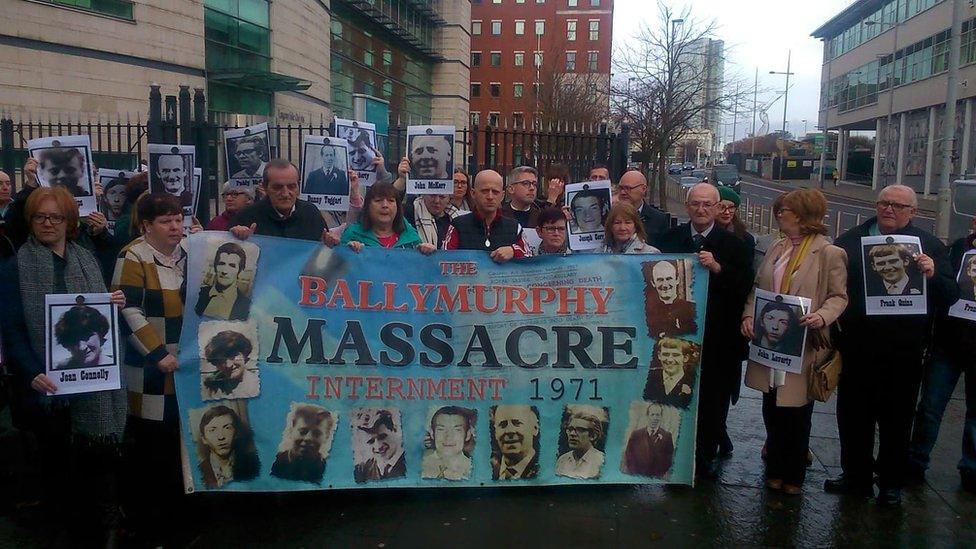
Relatives and supporters gathered outside Laganside Courts ahead of the start of the inquests
Although most people dropped to the ground, he could see that Edward Doherty was not moving and had been hit in the back.
The barrel of diesel in the barricade exploded as the soldier fired, he said.
He also said that he saw no weapons or petrol bombs among the crowd at whom, he claimed, the soldier had fired.
He said he was so fearful the soldier would reload and shoot him and the others that he threw a few handfuls of stones at the cab of the digger and that others in the crowd followed suit.
He told the court that after the soldier had left he and some other people started to lift Mr Doherty away - Mr McCabe saw "a pool of blood with air bubbles in it".
'Gunfire and mayhem'
He said the atmosphere in Ballymurphy in those days had been very tense.
"The area was terrified, under siege and people were fearful for their lives," he told the court.
"Living under the mountain, the gunfire reflects and you could hear the gunfire and the mayhem."
Mr McCabe said he was traumatised after Edward Doherty was shot and didn't return to his own home for two days for fear that the Army would come for him.
"I still have flashbacks," he said. "The Troubles don't leave me."
He revealed to the court that he is still undergoing treatment for PTSD and "this is the last thing that I wanted to be reminded about".
In a robust exchange in court, his account was challenged.
Mr McCabe rejected the suggestion by a barrister for the Ministry of Defence that his memories of the incident were confused and had been gleaned from other accounts he had read and seen in the intervening years.
- Published11 May 2021

- Published12 November 2018
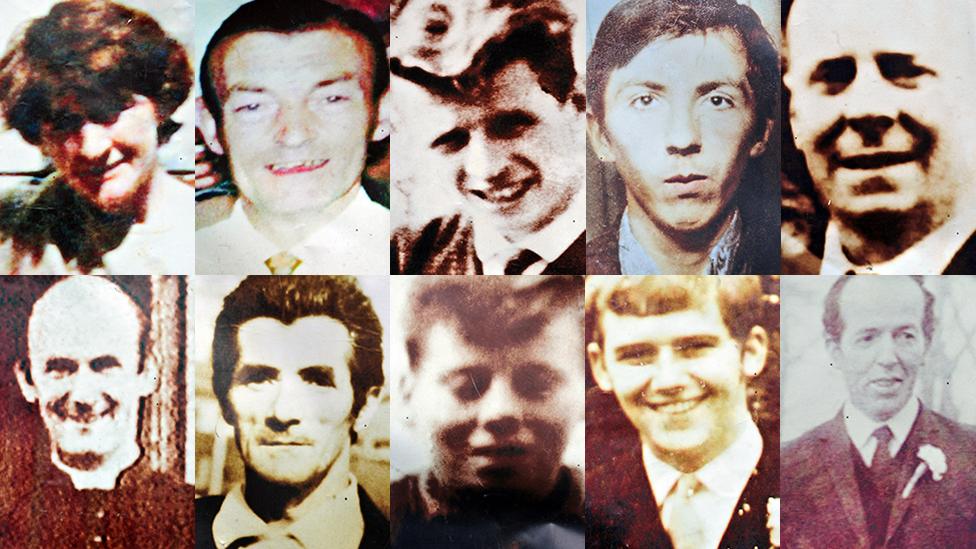
- Published2 May 2018
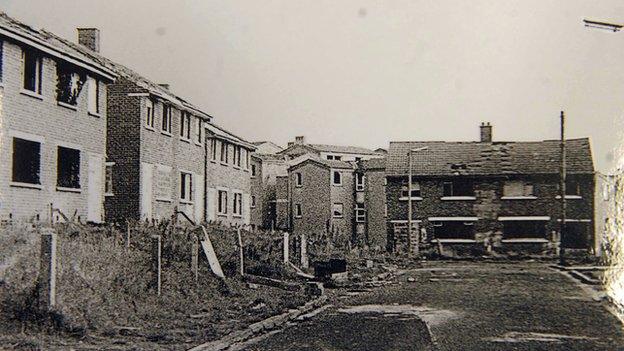
- Published6 September 2018
